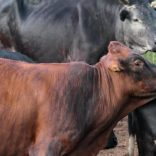Government of Mozambique, FAO and partners convene regional workshop in Mozambique to advance ...
Grain Institute wants to buy up Niassa maize

File photo
The Mozambican Grain Institute (ICM) is working with wholesalers to design strategies to prevent maize produced in the northernmost province of Niassa from being sold in neighbouring Malawi.
Legally, there is nothing to stop Niassa peasant farmers from selling their maize to whoever they like, and if the Malawians offer better prices, then the maize will go to Malawi.
Cited by Mozambique Television (TVM), the General Director of the ICM, Joao Macaringue, announced that the Institute will empower local agricultural marketing agents and place them at strategic points in Niassa, in order to buy up the maize and store it in Mozambican warehouses.
Macaringue said that, in a recent visit to Niassa, he noted with concern the large amounts of maize that were leaving the border districts of Ngauma and Mandimba, and were being sold in Malawi. There was a constant and visible flow of people carrying maize over the border, attracted by the Malawian prices.
Niassa producers say they welcome the ICM initiative, since they would prefer to deal with Mozambicans rather than Malawians. But they want “clear criteria” that will guide the sale of their surplus maize.
The district administrators confirmed that large quantities of Niassa maize are being sold in Malawi. They said it was difficult to keep the maize in Mozambique, when the Malawian traders are offering higher prices than those available on the Mozambican side of the border.
“We have to set up a purchasing station”, said Macaringue, “and start the purchases as soon as possible. Then gradually the producers will become confident that there is an internal capacity to acquire their produce”.
The ICM initiative should make it possible for farmers in remote parts of Niassa to sell their maize in Mozambique, thus overcoming the reluctance of Mozambican private traders to operate in these areas. But Macaringue’s proposal does not seem to address the issue of price.
The ICM is defined as the “buyer of last resort”, which should step in to buy crops when private traders are unwilling or unable to do so.













Leave a Reply
Be the First to Comment!
You must be logged in to post a comment.
You must be logged in to post a comment.